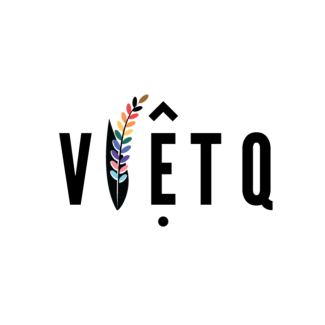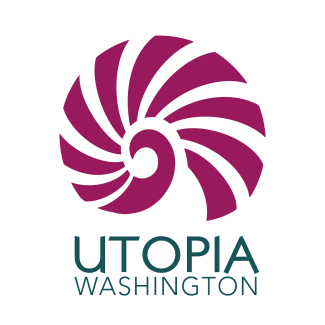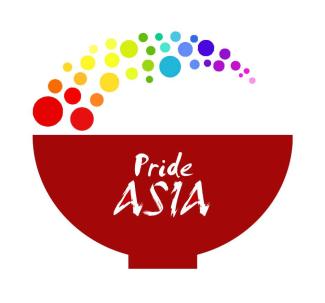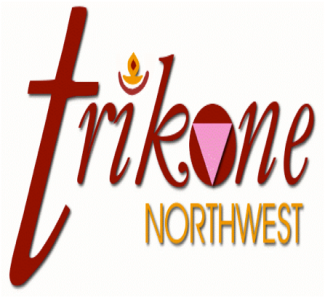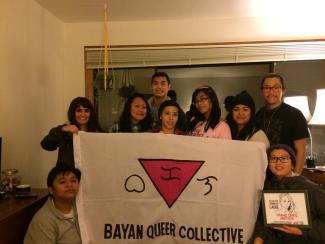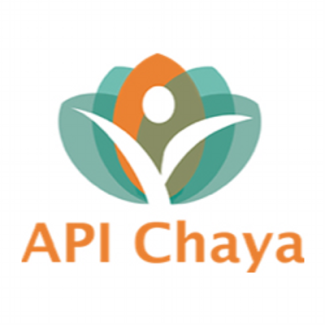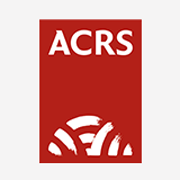LGBTQ+ ANHPIs are also a minority within a minority, and face compounded challenges for it, from cultural to linguistic to religious, to so many more. Moreover, as ANHPIs are facing a rise in anti-Asian sentiment and hate crimes as they are blamed for the coronavirus outbreak, LGBTQ+ ANHPIs face a “double whammy” of resentment and hate crimes for their identities.
In order to fully serve our communities, CAPAA compiled resources for our LGBTQ+ communities. Our communities can also follow and reach out to the Washington State LGBTQ Commission on Facebook for the latest updates, and to their website for further resources.
General Information
On the Community:
- 10 Things to Know about the LGBTQ API Communities
- Being Asian/Pacific Islander & LGBTQ: An Introduction
- Human Rights Campaign 2019 LGBTQ Asian and Pacific Islander Youth Report
- Queer Asian Compass and Descriptive Directory
- Erasure and Resilience: The Experiences of LGBTQ Students of Color – Asian American and Pacific Islander
LGBTQ Youth in U.S. Schools - Groundbreaking Study Reveals Transgender Asian Pacific Islanders Face Significant Discrimination
- Amid Anti-Asian Violence, White Nationalist Propaganda Surged to Record High in 2020
- In many Asian languages, ‘LGBTQ’ doesn’t translate. Here’s how some fill the gaps.
- Let’s talk about the Bengali LGBTQ+ community
On Coming Out:
- Coming Out: Living Authentically as LGBTQ Asian and Pacific Islander Americans
- Coming Out Issues for Asian Pacific Americans
- Family and Coming Out Issues for Asian Pacific Americans
- Religion and Coming Out Issues for Asian Pacific Americans
- Society and Coming Out Issues for Asian Pacific Americans
Our Stories:
- Seen and Unseen: Queering JA History before 1945
- The Visibility Project
- Q&A Space: A Storytelling Project of API Equality–LA
- Never Stand Down
- Family is Still Family
- Our Portraits, Our Families
- Out and Proud
- Uncovering Our Stories
- Coming Out
- Our Families: LGBT Asian and Pacific Islanders Stories
- How This Magazine Cover Sent A Man On A Journey To Find His Queer Asian Elders
- Day in the Queer Life – Lenore
- In 2021, what does visibility mean to the Asian and Trans+ communities?
- How do Queer Pasifika people get treated within my culture?
- ‘No Asians’: Two Words I’ve Faced My Entire Life That I’m Finally Confronting Today
- As Third Gender People, Our Cultures Help Us Celebrate Our Gender Nonconformity
- What I Learned When I Came Out to My Asian Mother
Queer APA-Centered Organizations in Washington State:
VietQ Washington is a Vietnamese LGBTQ collective that spans throughout Washington State, with most organizers in the King County. Follow them on Facebook for the most up-to-date information on workshops, support groups, and more.
United Territories of Pacific Islanders Alliance (U.T.O.P.I.A.) is an organization by and for queer and trans Pacific Islanders. Follow them on Facebook for the most up-to-date information on events, resources, and more. They also have a Portland, OR branch.
Pride ASIA is a Pan-Asian LGBTQ+ organization whose mission is to celebrate, empower and nurture the multi-cultural diversity of the LGBTQ communities through the Asian Pacific Islander lens. Follow them on Facebook for the most up-to-date information on events, resources, and more.
Trikone NW is a South Asian LGBTQ+ organization that serves the Pacific Northwest. Follow them on Facebook for more up-to-date information on events.
Seattle Bayan Queer Collective is a local collective of queer and trans Filipinx members of Bayan PNW, a progressive Filipinx group.
Other APA organizations in Washington with programs/support for LGBTQ+ APAs:
API Chaya is a Pan-Asian organization empowering survivors of gender-based violence and human trafficking. Their Queer Network Program (QNP) holds events and supports the QT community, particularly in tackling issues of intimate partner violence. Follow them on Facebook for the most up-to-date information, including bi-monthly QT Snack N’ Chats.
Japanese American Citizens League (JACL): a Japanese-American centered organization committed to protecting the rights of all segments of the Asian Pacific American community. JACL has been a strong ally of and advocate for the LGBTQ+ community for a long time, and hosted an event called Family 2.0 to address the need for an APA LGBTQ+ centered support group.
Asian Counseling and Referral Services (ACRS): a Pan-Asian non-profit organization. ACRS has hosted and sponsored LGBTQ+ events, including “Bạn – Means More Than Friends,” the first Vietnamese LGBTQ+ conference in the state.
Multilingual Resources
“Coming Out to API Families: Talking Points for API LGBTQ Youth,”courtesy of the National Queer Asian Pacific Islander Alliance (NQAPIA)
- English
- East Asian languages: Simplified Chinese, Traditional Chinese, Japanese, Korean
- Southeast Asian languages: Ilocano (Filipino), Indonesian, Hmong, Khmer, Lao, Malay, Tagalog (Filipino), Thai, Vietnamese
- South Asian languages: Hindi, Bengali, Gujarati, Malayalam, Marathi, Punjabi, Tamil, Urdu
- West Asian: Arabic, Farsi
- Pacific Islander: Chamorro, Samoan
“Coming Out: Living Authentically as LGBTQ Asian and Pacific Islander Americans,” courtesy of the Human Rights Campaign
“Family is Still Family” PSA videos, courtesy of Asian Pride Project and NQAPIA
“My Daughter Just Told Me She’s Gay… What Now?” courtesy of API Equality LA
Report Hate/Discrimination
CAPAA does not do case work, nor may we provide legal counsel. We urge all victims of hateful acts to take the following actions:
Get medical help, if necessary.
Write down all details of the crime as soon as possible after the incident.Include the perpetrator[s] gender, age, height, race, weight, clothes and other distinguishing characteristics. If any threats or biased comments were made, include them in the report.
Make a report.Report the incident to your local law enforcement. If victims do not want to go to the police, submit a report to the local Civil Rights/Human Rights Task Force in your area).Even if an incident doesn’t meet the legal definition of a hate crime, it is still important to report it to the appropriate entity. Please refer to the information listed below.
State, county, and city governments and other organizations often have a place to report acts of hate and discrimination including, but not limited to, the resources listed below:
- Washington State Human Rights Commission
Under the law, everyone has the right to be free from discrimination at work, in housing, in a public accommodation, or when seeking credit and insurance. Any individual who believes that he or she has been discriminated against based on protected class status may file a charge of discrimination for employers, housing providers, and businesses. - King County Office of Civil Rights
This office has authority to handle discrimination complaints only for King County government and for employers, housing providers, and businesses in the unincorporated parts of King County (outside the cities). - Seattle Office for Civil Rights
This office upholds laws that protect you against discriminatory harassment in housing, employment, or public places within Seattle city limits. - Spokane Police Department: Reporting Hate and Bias Crimes
This page contains information on what a hate crime is, and how to report it. - City of Spokane’s Human Rights Commission
This is the appropriate point of contact if you reside in the City of Spokane. The page contains information on different types of complaints. - Spokane County Human Rights Task Force Hate Incident Report Form
This is the appropriate point of contact if you reside elsewhere in Spokane County.
Human Rights Campaign (HRC) has a guide for victims of hate crimes: What to Do If You’ve Been The Victim of a Hate Crime.


